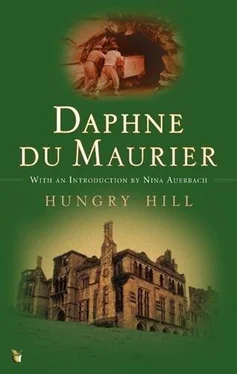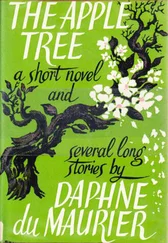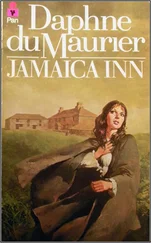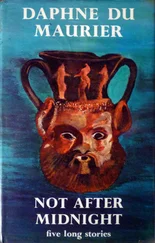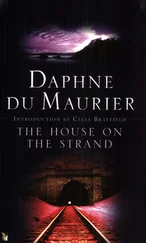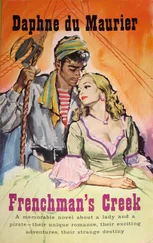Daphne du Maurier - Hungry Hill
Здесь есть возможность читать онлайн «Daphne du Maurier - Hungry Hill» весь текст электронной книги совершенно бесплатно (целиком полную версию без сокращений). В некоторых случаях можно слушать аудио, скачать через торрент в формате fb2 и присутствует краткое содержание. Жанр: Историческая проза, на английском языке. Описание произведения, (предисловие) а так же отзывы посетителей доступны на портале библиотеки ЛибКат.
- Название:Hungry Hill
- Автор:
- Жанр:
- Год:неизвестен
- ISBN:нет данных
- Рейтинг книги:3 / 5. Голосов: 1
-
Избранное:Добавить в избранное
- Отзывы:
-
Ваша оценка:
- 60
- 1
- 2
- 3
- 4
- 5
Hungry Hill: краткое содержание, описание и аннотация
Предлагаем к чтению аннотацию, описание, краткое содержание или предисловие (зависит от того, что написал сам автор книги «Hungry Hill»). Если вы не нашли необходимую информацию о книге — напишите в комментариях, мы постараемся отыскать её.
Hungry Hill — читать онлайн бесплатно полную книгу (весь текст) целиком
Ниже представлен текст книги, разбитый по страницам. Система сохранения места последней прочитанной страницы, позволяет с удобством читать онлайн бесплатно книгу «Hungry Hill», без необходимости каждый раз заново искать на чём Вы остановились. Поставьте закладку, и сможете в любой момент перейти на страницу, на которой закончили чтение.
Интервал:
Закладка:
Miss Harris will be smothered in the linen-press."
She left the drawing-room in great agitation, while Simon Flower regarded his daughter with indulgence from the piano.
"I never cared for that Miss Harris," he said; "she had a mean, snivelling manner with her that did not suit our ways. I think it is high time that you did without a governess."
Fanny-Rosa, recovered from her burst of temper, looked out of the corner of her eyes at the two Brodricks, and sat herself down in her mother's chair.
"I thought you were both in London," she said softly. "You do not generally come to Clonmere till after Christmas, do you?"
Henry found himself telling once again the story of the mine, and this time he had a more receptive audience.
Fanny-Rosa clasped her bare legs, and never took her eyes off his face.
"I wish I could come with you both," she said, "instead of my father. I would dearly love to wait out on the hillside in the middle of the night. And if you had a fight with your miners I would not be afraid."
"I tell you what it is," said Simon Flower; "your bout with Miss Harris has put you in trim for a scrap. I have little doubt these lads would let you ride pillion behind one of them, and you would give a good account of yourself in the bargain. But you never told us what was the trouble with Miss Harris?"
"She told Tilly and me it was time we learnt to fold up our clothes, and I said I would not. All young ladies, she said, should do so from habit, and not have them strewn about the floor like girls from the kitchen.
"What would your uncle, the Earl of Mundy, say to your slovenly ways?"' she said. "Maybe he would forgive me if I sat by his side and pulled his whiskers and told him how handsome he was," I answered her. And with that she looked down her long nose and said I must learn a page of French verbs, so I scratched her face for her, as I told you before, and had her shut in the linen-press, and I can tell from your eyes that you would have served her the same, Mr. Brodrick."
She looked slyly across at John, who blushed to the roots of his hair and laughed under his breath.
Fanny-Rosa then helped herself to a large piece of cake, and poured herself some tea, while the eyes of the two Brodricks were drawn irresistibly to the fascination of the slim bare feet.
"You have been on the Continent, have you not?" she said to Henry, with her mouth full of cake. "Ah, I know all about you, our footman is cousin to your cook. We were in Paris ourselves last winter, because my grandfather let my father have some money to spend, and we went to Paris instead of buying new curtains for my mother's bedroom."
"Yes, you baggage," said Simon Flower, "and whenever we visited a picture-gallery what should we find in every room but a trail of young Frenchmen behind us? So in the end the people were bowing to us, thinking we were a royal procession."
"It was a Miss Wilson who was our governess then," said Fanny-Rosa, "and I slipped away from her twice when she was conducting me through the streets, so that she thought I had been abducted, and went in tears to the policemen, but they, being French, did not understand her. She was forced to go to a quiet place in the country when we returned, as she had developed nervous trouble. Would you believe it, but I have had a dozen governesses since I was fourteen, and I had my seventeenth birthday last month, so this is the end of it all."
"You will be the end of your parents too," said Mrs.
Flower severely, entering the room at this moment, after a vain attempt to mollify the unfortunate Miss Harris. "You may think yourselves lucky, Mr.
Brodrick, that your own sisters do not behave in similar fashion, and I trust you will not give an account of this daughter of mine to Miss Brodrick when you return."
"I tell you what," cried Simon Flower.
"Why do you two boys go back home at all?
Let your father go down the old burrows after the miners if it pleases him. You shall stay and dine with us, and we will pay another visit to the cellar, and Fanny-Rosa shall come with us."
But Henry shook his head and moved towards the door, much to his brother's mortification.
"You are very kind, sir," he said, "but we have already delayed far too long as it is. My father will be in some anxiety concerning U."
Simon Flower waved a careless hand, and sat himself down to the piano.
"I'll shoot with your father any day he fancies, on Doon Island," he said. "I'd never refuse an invitation of that sort. But to go crawling or my stomach after Morty Donovan in the middle of the night, no, I will not do it, and ye can tell him so to hia'oux"
"bb'face."
And with that he burst once more into song, joined by the faithful setter, and the two Brodricks left Castle Andriff to the confused sound of clashing chords, a rich baritone voice, and the barking of at least half-a-dozen dogs, while the elder daughter of the house, an enchanting barefooted figure, waved to them from the stone steps.
Dazed, bewildered, and still slightly intoxicated, the two brothers rode home at a pace that would have infuriated Copper John could he have seen them. It was not until they were within sight of Doon-haven that they drew rein, and Henry pulled himself to his senses.
"You know, John," he said, "my father is perfectly right. This country will never prosper while it continues to breed people like the Flowers."
John did not answer. The prosperity of the country meant nothing to him. Henry could continue his observations in his critical fashion and abuse Simon Flower if he wished. The only thing that mattered to John was this: that never in his life had he set eyes on anything quite so lovely as Simon Flower's daughter Fanny-Rosa.
On the following Saturday evening the Brodricks were seated round the fire in the library, having dined early, as was their custom. Jane had been gathering cones from the woods during the day, and these she now scattered on the smoking turf, making the fire hiss and crackle, the better to shut out the sound of the wind as it moaned in the trees behind Clonmere. There was a full gale blowing outside in Mundy Bay, but the long Atlantic rollers swept past the entrance to Doonhaven, while the straggling length of Doon Island acted as a natural breakwater.
The tide ebbed swiftly in the creek below the castle, making a strong ripple against the wind, but so sheltered was Clonmere from the full force of the gale that only the sudden tremor of the woods above the house gave warning that the still weather had broken at last.
Henry was seated at his father's desk, writing a letter to Barbara at Lletharrog, while John sprawled as usual in the most comfortable chair, one hand fondling the ear of his favourite greyhound, the other propping up a book he did not read. He was watching the cones as they burst in the fire, and Jane, glancing up at his half-closed eyes, wondered what he was thinking.
The week had been quiet. No further pilfering had been discovered at the mine, and though a watch had been stationed on the hillside every night no one had come upon the hill save the watchers themselves. Yet there was a strange feeling of unrest in the air, a brooding sense of disquiet. And the miners, watching one another in suspicion, went about their work sullenly and in silence.
It was not only at the mine that this atmosphere prevailed. Down in Doonhaven, when Jane, accompanied by old Martha, went to make a purchase at Murphy's shop, and would have chatted as usual in her happy way to Murphy, whom she had known from babyhood, the man avoided her eye, looking uncomfortable, and muttering some excuse, disappeared into the back of his shop, leaving a young ignorant lad to serve her. It seemed to her too that the people in the market square stared at her with hostility, and when she smiled and said good-morning they turned their backs and pretended not to see.
Читать дальшеИнтервал:
Закладка:
Похожие книги на «Hungry Hill»
Представляем Вашему вниманию похожие книги на «Hungry Hill» списком для выбора. Мы отобрали схожую по названию и смыслу литературу в надежде предоставить читателям больше вариантов отыскать новые, интересные, ещё непрочитанные произведения.
Обсуждение, отзывы о книге «Hungry Hill» и просто собственные мнения читателей. Оставьте ваши комментарии, напишите, что Вы думаете о произведении, его смысле или главных героях. Укажите что конкретно понравилось, а что нет, и почему Вы так считаете.
